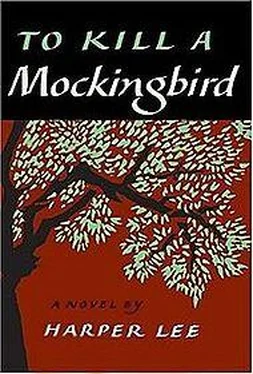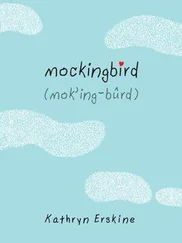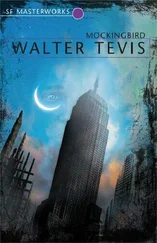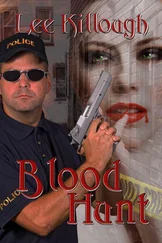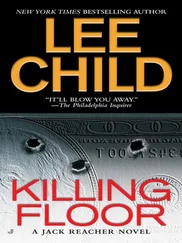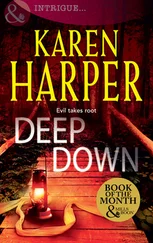Lee Harper - To Kill a Mockingbird
Здесь есть возможность читать онлайн «Lee Harper - To Kill a Mockingbird» весь текст электронной книги совершенно бесплатно (целиком полную версию без сокращений). В некоторых случаях можно слушать аудио, скачать через торрент в формате fb2 и присутствует краткое содержание. Жанр: Современная проза, на английском языке. Описание произведения, (предисловие) а так же отзывы посетителей доступны на портале библиотеки ЛибКат.
- Название:To Kill a Mockingbird
- Автор:
- Жанр:
- Год:неизвестен
- ISBN:нет данных
- Рейтинг книги:3 / 5. Голосов: 1
-
Избранное:Добавить в избранное
- Отзывы:
-
Ваша оценка:
- 60
- 1
- 2
- 3
- 4
- 5
To Kill a Mockingbird: краткое содержание, описание и аннотация
Предлагаем к чтению аннотацию, описание, краткое содержание или предисловие (зависит от того, что написал сам автор книги «To Kill a Mockingbird»). Если вы не нашли необходимую информацию о книге — напишите в комментариях, мы постараемся отыскать её.
To Kill a Mockingbird — читать онлайн бесплатно полную книгу (весь текст) целиком
Ниже представлен текст книги, разбитый по страницам. Система сохранения места последней прочитанной страницы, позволяет с удобством читать онлайн бесплатно книгу «To Kill a Mockingbird», без необходимости каждый раз заново искать на чём Вы остановились. Поставьте закладку, и сможете в любой момент перейти на страницу, на которой закончили чтение.
Интервал:
Закладка:
“Come here, Scout,” said Atticus. I crawled into his lap and tucked my head under his chin. He put his arms around me and rocked me gently. “It’s different this time,” he said. “This time we aren’t fighting the Yankees, we’re fighting our friends. But remember this, no matter how bitter things get, they’re still our friends and this is still our home.”
With this in mind, I faced Cecil Jacobs in the schoolyard next day: “You gonna take that back, boy?”
“You gotta make me first!” he yelled. “My folks said your daddy was a disgrace an’ that nigger oughta hang from the water-tank!”
I drew a bead on him, remembered what Atticus had said, then dropped my fists and walked away, “Scout’s a cow — ward!” ringing in my ears. It was the first time I ever walked away from a fight.
Somehow, if I fought Cecil I would let Atticus down. Atticus so rarely asked Jem and me to do something for him, I could take being called a coward for him. I felt extremely noble for having remembered, and remained noble for three weeks. Then Christmas came and disaster struck.
Jem and I viewed Christmas with mixed feelings. The good side was the tree and Uncle Jack Finch. Every Christmas Eve day we met Uncle Jack at Maycomb Junction, and he would spend a week with us.
A flip of the coin revealed the uncompromising lineaments of Aunt Alexandra and Francis.
I suppose I should include Uncle Jimmy, Aunt Alexandra’s husband, but as he never spoke a word to me in my life except to say, “Get off the fence,” once, I never saw any reason to take notice of him. Neither did Aunt Alexandra. Long ago, in a burst of friendliness, Aunty and Uncle Jimmy produced a son named Henry, who left home as soon as was humanly possible, married, and produced Francis. Henry and his wife deposited Francis at his grandparents’ every Christmas, then pursued their own pleasures.
No amount of sighing could induce Atticus to let us spend Christmas day at home. We went to Finch’s Landing every Christmas in my memory. The fact that Aunty was a good cook was some compensation for being forced to spend a religious holiday with Francis Hancock. He was a year older than I, and I avoided him on principle: he enjoyed everything I disapproved of, and disliked my ingenuous diversions.
Aunt Alexandra was Atticus’s sister, but when Jem told me about changelings and siblings, I decided that she had been swapped at birth, that my grandparents had perhaps received a Crawford instead of a Finch. Had I ever harbored the mystical notions about mountains that seem to obsess lawyers and judges, Aunt Alexandra would have been analogous to Mount Everest: throughout my early life, she was cold and there.
When Uncle Jack jumped down from the train Christmas Eve day, we had to wait for the porter to hand him two long packages. Jem and I always thought it funny when Uncle Jack pecked Atticus on the cheek; they were the only two men we ever saw kiss each other. Uncle Jack shook hands with Jem and swung me high, but not high enough: Uncle Jack was a head shorter than Atticus; the baby of the family, he was younger than Aunt Alexandra. He and Aunty looked alike, but Uncle Jack made better use of his face: we were never wary of his sharp nose and chin.
He was one of the few men of science who never terrified me, probably because he never behaved like a doctor. Whenever he performed a minor service for Jem and me, as removing a splinter from a foot, he would tell us exactly what he was going to do, give us an estimation of how much it would hurt, and explain the use of any tongs he employed. One Christmas I lurked in corners nursing a twisted splinter in my foot, permitting no one to come near me. When Uncle Jack caught me, he kept me laughing about a preacher who hated going to church so much that every day he stood at his gate in his dressing-gown, smoking a hookah and delivering five-minute sermons to any passers-by who desired spiritual comfort. I interrupted to make Uncle Jack let me know when he would pull it out, but he held up a bloody splinter in a pair of tweezers and said he yanked it while I was laughing, that was what was known as relativity.
“What’s in those packages?” I asked him, pointing to the long thin parcels the porter had given him.
“None of your business,” he said.
Jem said, “How’s Rose Aylmer?”
Rose Aylmer was Uncle Jack’s cat. She was a beautiful yellow female Uncle Jack said was one of the few women he could stand permanently. He reached into his coat pocket and brought out some snapshots. We admired them.
“She’s gettin’ fat,” I said.
“I should think so. She eats all the leftover fingers and ears from the hospital.”
“Aw, that’s a damn story,” I said.
“I beg your pardon?”
Atticus said, “Don’t pay any attention to her, Jack. She’s trying you out. Cal says she’s been cussing fluently for a week, now.”
Uncle Jack raised his eyebrows and said nothing. I was proceeding on the dim theory, aside from the innate attractiveness of such words, that if Atticus discovered I had picked them up at school he wouldn’t make me go.
But at supper that evening when I asked him to pass the damn ham, please, Uncle Jack pointed at me. “See me afterwards, young lady,” he said.
When supper was over, Uncle Jack went to the livingroom and sat down. He slapped his thighs for me to come sit on his lap. I liked to smell him: he was like a bottle of alcohol and something pleasantly sweet. He pushed back my bangs and looked at me. “You’re more like Atticus than your mother,” he said. “You’re also growing out of your pants a little.”
“I reckon they fit all right.”
“You like words like damn and hell now, don’t you?”
I said I reckoned so.
“Well I don’t,” said Uncle Jack, “not unless there’s extreme provocation connected with ‘em. I’ll be here a week, and I don’t want to hear any words like that while I’m here. Scout, you’ll get in trouble if you go around saying things like that. You want to grow up to be a lady, don’t you?”
I said not particularly.
“Of course you do. Now let’s get to the tree.”
We decorated the tree until bedtime, and that night I dreamed of the two long packages for Jem and me. Next morning Jem and I dived for them: they were from Atticus, who had written Uncle Jack to get them for us, and they were what we had asked for.
“Don’t point them in the house,” said Atticus, when Jem aimed at a picture on the wall.
“You’ll have to teach ‘em to shoot,” said Uncle Jack.
“That’s your job,” said Atticus. “I merely bowed to the inevitable.”
It took Atticus’s courtroom voice to drag us away from the tree. He declined to let us take our air rifles to the Landing (I had already begun to think of shooting Francis) and said if we made one false move he’d take them away from us for good.
Finch’s Landing consisted of three hundred and sixty-six steps down a high bluff and ending in a jetty. Farther down stream, beyond the bluff, were traces of an old cotton landing, where Finch Negroes had loaded bales and produce, unloaded blocks of ice, flour and sugar, farm equipment, and feminine apparel. A two-rut road ran from the riverside and vanished among dark trees. At the end of the road was a two-storied white house with porches circling it upstairs and downstairs. In his old age, our ancestor Simon Finch had built it to please his nagging wife; but with the porches all resemblance to ordinary houses of its era ended. The internal arrangements of the Finch house were indicative of Simon’s guilelessness and the absolute trust with which he regarded his offspring.
There were six bedrooms upstairs, four for the eight female children, one for Welcome Finch, the sole son, and one for visiting relatives. Simple enough; but the daughters’ rooms could be reached only by one staircase, Welcome’s room and the guestroom only by another. The Daughters’ Staircase was in the ground-floor bedroom of their parents, so Simon always knew the hours of his daughters’ nocturnal comings and goings.
Читать дальшеИнтервал:
Закладка:
Похожие книги на «To Kill a Mockingbird»
Представляем Вашему вниманию похожие книги на «To Kill a Mockingbird» списком для выбора. Мы отобрали схожую по названию и смыслу литературу в надежде предоставить читателям больше вариантов отыскать новые, интересные, ещё непрочитанные произведения.
Обсуждение, отзывы о книге «To Kill a Mockingbird» и просто собственные мнения читателей. Оставьте ваши комментарии, напишите, что Вы думаете о произведении, его смысле или главных героях. Укажите что конкретно понравилось, а что нет, и почему Вы так считаете.
